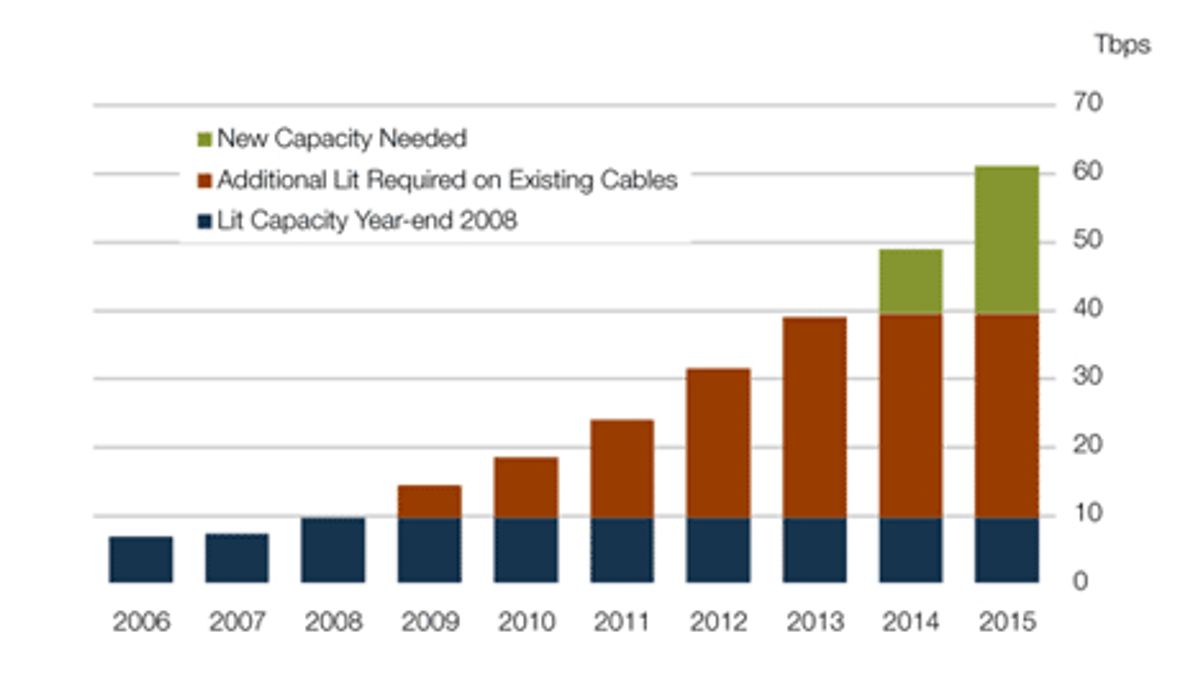We at Spectrum had just sent our July issue off to the printer in late June when the telecommunications research firm Telegeography issued a report “Trans-Atlantic bandwidth – the hangover lingers” that provides an ominous footnote to our article about submarine cable construction (”A Telecom Diet Rich in Fiber”) Telegeography forecasts trans-Atlantic demand to rise from 10 terabits per second today to about 60 Tb/s in 2015.
The first 30 or so terabits can be met by increased use of existing cables, it says, but the final 20 terabits will require new cables that may not get built:
Trans-Atlantic capacity will be exhausted by 2014, and cables providing diversity along geographically unique routes may run out of capacity even sooner. New capacity will clearly be needed; less clear is who will deploy this capacity, how they will deploy it, and how they will finance it.
Telegeography says that current wholesale rates “reflect only the incremental cost of the optical equipment needed to provision the circuit, but not the cost of cable construction.”
While 2014 is still five years off, lengthy cable financing and construction cycles mean that carriers must confront this challenge far sooner. New technologies, such as 40 Gb/s transmission line rates, may allow operators to expand capacity on some existing systems, delaying the need for new cables. However, these technologies remain unproven on a commercial long-haul submarine cable, and will only postpone the inevitable day of reckoning.
One thing there’s never a shortage of is predictions that telecommunications demand will exceed the industry’s capacity to create new capacity. As with Moore’s Law, whose terminus is endlessly predicted to be just a few years away, new telecommunications innovations have always interposed themselves to save the day. Logically, one day or another, the doomsdaysayers will be right. The question is, when will that day come?




